This book was made possible by the generous financial assistance of the Cato Institute. I especially wish to thank two people at Cato.
Tom G. Palmer, a colleague of mine for many years, was involved with this project from the beginning. Dr. Palmer's contributions over a period of years, which included suggested revisions in two drafts, were invaluable.
David Boaz, executive vice president of the Cato Institute, shepherded this book through its final stages. His patience and encouragement in the face of repeated delays were worthy of a saint.
Introduction
Liberal individualism or classical liberalism, as it is often called has a long and rich ancestry, but it did not begin to take shape as a coherent and integrated political theory until the seventeenth century. It was in that century that challenges to the theory of political absolutism came to fruition in the writing of the Levellers, Algernon Sidney, John Locke, and other individualists. Against the theory of state sovereignty, which had gained traction with the rise of the modern nation-state, liberals countered with a theory of self-sovereignty, according to which all moral rights and duties ultimately reside in individuals and can be delegated to governments only with the consent of the governed.
This book is not a history of classical liberalism per se; rather, it covers some basic themes and controversies that run throughout the history of liberalism, especially those that divided liberals into different camps, such as natural-rights versus utilitarian liberalism. Such internecine conflicts seem to go with the territory of political movements that enjoy some measure of success. After a common foe has been vanquished as was largely the case with political absolutism by the mid-eighteenth century the victors tend to turn their gaze inward, toward the fundamental premises of their own philosophy, in an effort to develop that philosophy in a systematic fashion. And with sustained reflection on how liberal principles can best deal with the problems of political philosophy came differences of opinion about the foundation and proper application of those principles.
Despite these differences, liberals shared common ground on a number of key issues that imparted unity to an otherwise variegated tradition. One such issue was the importance of ideas in effecting social and political change. Although liberals understood that self-interest is a powerful motive in human affairs, they also understood that self-interest is not a primary. Rather, how people view their own interests will ultimately depend on their beliefs about human nature, social interaction, the proper roles of coercion and persuasion,
This accounts for the stress that liberals placed on rational, or enlightened , self-interest or what Bishop Butler felicitously described as cool self-love. Most liberals agreed that a society that permits a maximum amount of individual freedom will serve the long-range interests of everyone in that society, and this belief caused them to stress the role of education as a means of teaching people the value of freedom.
The value of individual freedom was another point of agreement among liberals; indeed, this may be called the defining characteristic of classical liberalism. In the words of the liberal historian Lord Acton, a liberal is a person whose polar star is liberty who deems those things right in politics which, taken all round, promote, increase, perpetuate freedom, and those things wrong which impede it. The true liberal views liberty as an end, not merely as a means; it is a value that is not exchangeable for any amount, however large, of national greatness and glory, of prosperity and wealth, of enlightenment or morality.
In moral terms, this focus on individual freedom, wherein freedom functions as a polar star to guide political decisions and institutions, was formulated during different historical stages of liberalism as self-proprietorship, self-sovereignty, self-ownership, and so forth. Such terms, which emphasized the moral priority of the individual over any social collective or political agency, expressed the natural right of individuals to use their bodies, freedom, labor, and justly acquired property as they see fit, so long as they respect the equal freedom of others.

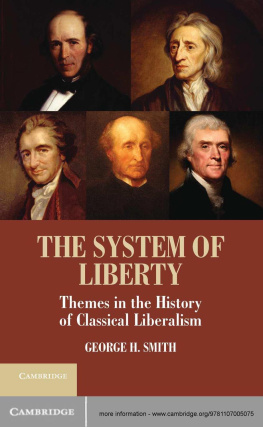
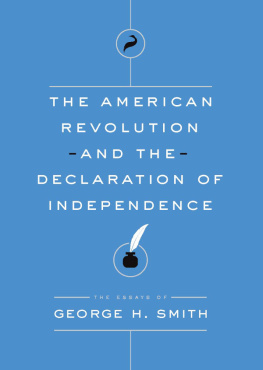
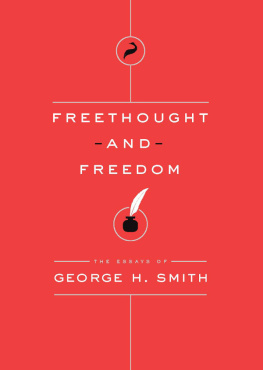

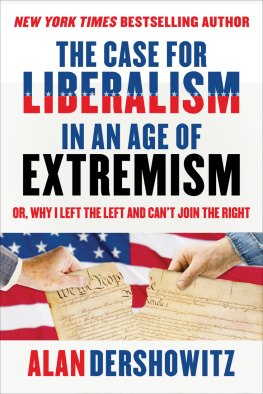
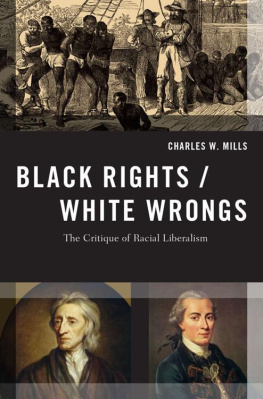
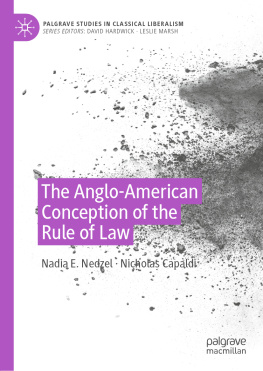
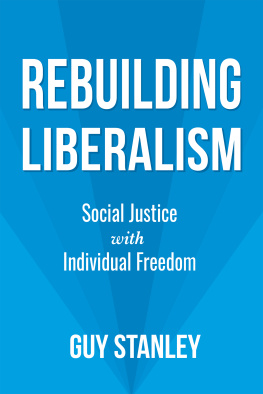
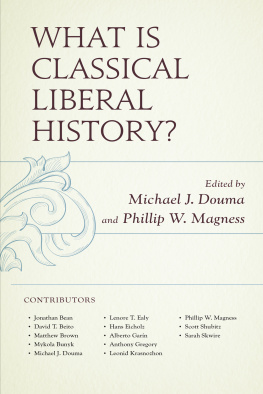

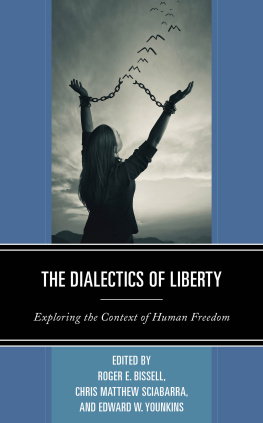
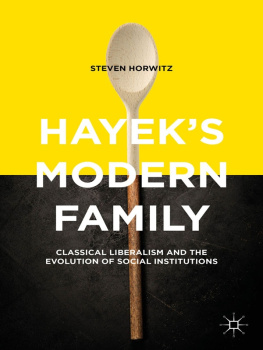

 2--dc23 2012039029
2--dc23 2012039029